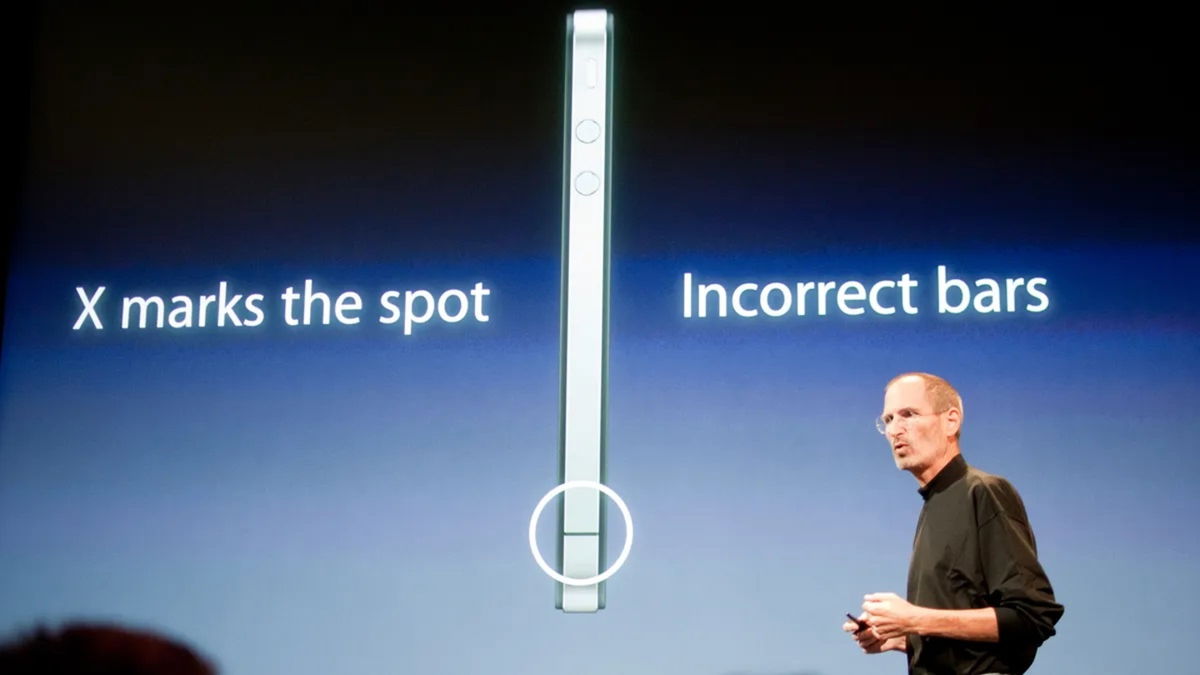Throughout his life, he demonstrated repeatedly that leadership Steve Jobs This was the defining factor in Apple’s massive success. Just a year after the launch of the first Mac, Steve was fired from his own company. They considered him too disrespectful to remain at the helm of such a valuable company.
At the time, sales were disappointing, so the board made Steve Jobs pay the price by replacing him with John Sculley, an executive whom Jobs himself had convinced to leave Pepsi and join his team at Apple. For a while, it seemed like they had made the right decision. Sales improved, and the promise of a new product line made executives optimistic. But over time, they realized that they didn’t really know what they were doing..
Producing so many different products has caused Apple to lose its individuality. They went from being the most sophisticated computer company to just another company in the group.By 1997, Apple barely had 3.3% of the personal computer market, and its shares were selling for just $14. No one thought of Apple as a revolutionary company anymore. Until they decided to buy NeXT, a company that Steve Jobs had founded in the meantime. Upon his return, Steve Jobs would reclaim his former position as CEO, and the rest is history.
Much of Steve Jobs’ genius comes from his philosophy of life, which was based on three important influences: a difficult childhood, psychedelic drugs, and India. The American was adopted and forced to change schools several times. He had a hard time fitting in, and was often discriminated against by his classmates, causing him to become a loner. During his senior year of high school, he began experimenting with LSD, experiencing “the most wonderful feeling of my life at that time.”At the age of 19, he went to India in search of spiritual wisdom. He spent seven months visiting gurus in their ashramsHe continued to experiment with psychedelics and eventually began practicing Zen Buddhism. The lessons he learned were clear in an email he sent to himself before he died.
The Touching Letter Steve Jobs Sent To Himself
A letter sent from his iPad on September 2, 2010, and published in the Steve Jobs Archive, shows how deeply Eastern philosophy has influenced Steve Jobs’s outlook. In prose, it reads:
I grow some of the food I eat and I do it.
I didn’t have to create or perfect the seeds.
I don’t produce my own clothes.
I speak a language that I did not invent or perfect.
I haven’t found the math I use.
I am protected by freedoms and laws that I did not invent or issue, do not observe and do not demand.
I care about music that I didn’t compose.
When I needed medical help, I couldn’t help myself survive.
I did not invent the transistor, the microprocessor, object-oriented programming, or most of the technologies I work with. I love and admire my species, living and dead, and my life and well-being depend entirely on them.

Steve Jobs was born in the United States and lived most of his life in this country, but his values were Eastern. While Western philosophy is based on individualism, individual freedoms, private property and democracy, Eastern philosophy, which comes from India and China, approaches reality in completely different ways.He gives priority to the collective, society, family over the individual.
For Hinduism and Buddhism, the third and fourth religions with the largest number of believers in the world, the individual person is just a grain of sand, their individual significance is minimal. Pride is meaningless because your existence is the product of billions of factors to which you have no control.Through yoga, which means union, and meditation, these cultures seek to control the ego and separate themselves from their natural impulses. Less involved in personal problems, one feels part of the whole and acts accordingly.
The email above is a synthesis of those values, an acknowledgement that, like the rest of us, Steve Jobs was a product of his society. Had he not been born in San Francisco, so close to Silicon Valley, he would certainly not have become the CEO of the most valuable company of all time. So too are the genes he inherited and the other factors that made him such a visionary. Late in life, he realized his own insignificance, which likely filled him with enormous gratitude. But his philosophy of life had a devastating effect on his health.

Steve Jobs’ Eastern Values Were One of the Reasons for His Early Death
Steve Jobs died after battling pancreatic cancer on October 5, 2011. This type of cancer is often devastating. Luckily, the cancer that afflicted Jobs was one of the 5% that can be cured. But the visionary Apple founder did not take advantage of thisI would rather spend a few months trying all kinds of alternative therapies such as spiritual healing, eating certain medicinal roots or eating only fruits and others.
After nine months of experimenting with spiritual medicine, his family managed to convince him to have traditional surgery. But by then it was too late: the cancer had spread to the tissue surrounding his pancreas. When his biographer Walter Isaacson asked him why he made the decision, Jobs said he did not want doctors to cut into his body, as he would consider it a form of rape.Over time, he regretted his choice.
According to his biographer, in many cases Steve Jobs chose to ignore problems that he did not want to exist. This allowed him to have a kind of magical thinking, going beyond his current capabilities.. Such thoughts had helped him achieve his goals before. But at the most critical moment for his health, this protocol worked against him. The values that made him unique were cut off from his life before their time.
Source: Hiper Textual
I’m Ben Stock, a highly experienced and passionate journalist with a career in the news industry spanning more than 10 years. I specialize in writing content for websites, including researching and interviewing sources to produce engaging articles. My current role is as an author at Gadget Onus, where I mainly cover the mobile section.













